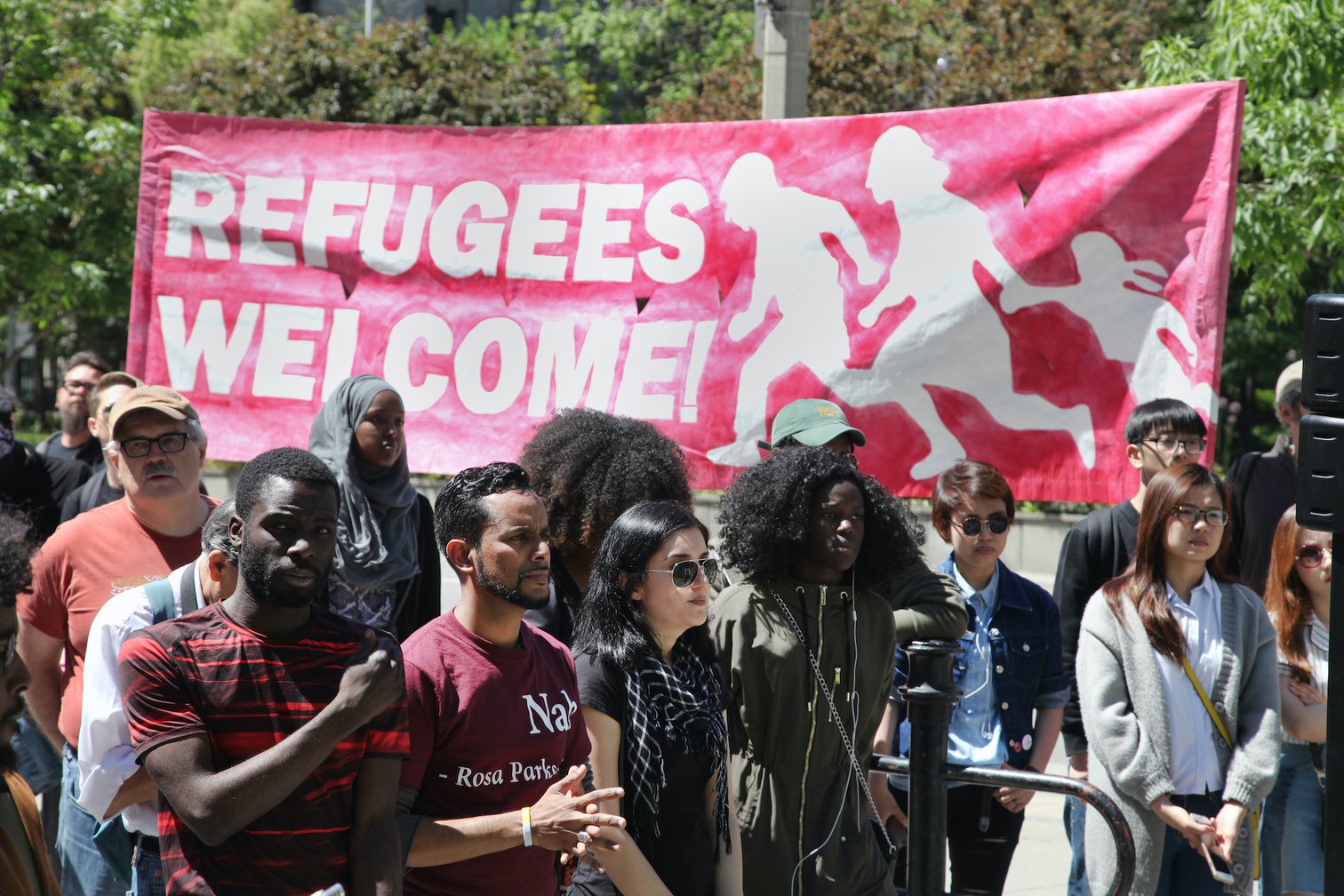BY Colin R. Singer
Canada is introducing a new economic pathway under the Economic Mobility Pathways Pilot (EMPP) to help employers hire skilled refugees and other displaced individuals.
The EMPP allows Canadian employers to fill job vacancies while giving refugees a chance to restart their careers in Canada.
The new immigration pathway under the EMPP will open this summer.
“Canada is a global leader in helping skilled refugees connect with employers struggling to find workers in critical areas while giving newcomers the opportunity to restart their careers and their lives here in Canada,” said Fraser.
“Our government will continue to develop and scale innovative immigration measures to help employers address their critical labour shortages and provide refugees with the opportunity to live in safety while rebuilding their lives.”
Monday’s announcement of the new EMPP pathway was not a surprise as back in December last year, Ottawa was already talking about expanding opportunities for refugees to come to Canada and invested $6.2 million to help partner organizations run six projects to do just that under the EMPP.
“Resettlement provides refugees with the opportunity to live in safety and rebuild their lives but it shouldn’t mean their career experience gets overlooked in the process,” said Fraser in December last year.
“Through this ground-breaking program, our government is highlighting skilled refugees’ professional achievements by allowing them to continue their careers in Canada while giving employers access to a pool of global talent.”
Under the new EMPP pathway announced Monday, Ottawa is promising to give employers more opportunities to fill a wide range of in-demand jobs, including:
- nurse aides;
- personal support workers;
- long-term care aides;
- software engineers;
- web designers;
- mechanical and electrical engineers and technicians;
- teachers;
- tourism and hospitality workers, and;
- truck and delivery service drivers.
With the new pathway, the EMPP will include a more flexible approach to eligibility by allowing applications from other displaced people who lack a durable solution and who are in need of international protection to apply.
Six Months To Process Applications Under New EMPP Pathway, Says Immigration Minister
“This program will avoid the need for employers to tap into Provincial Nominee Programs (PNP) … In most cases, we will be able to approve people within six months from start to finish,” Fraser told members of the Empire Club of Canada on March 27.
Immigration, Refugees and Citizenship Canada (IRCC) will be offering more information on the new federal pathway, including eligibility criteria, on the immigration department’s EMPP webpage in the coming weeks.
The new pathway is already being heralded by employers throughout Canada as welcome news to resolve the country’s existing labour shortages.
“The need for skilled talent continues to create many recruitment challenges for employers in the long-term care sector,” said Doug Stephens, general manager of operations and human resources for the Antigonish, Nova Scotia-based long-term care home company MacLeod Group.
“Within our organization, we have seen our needs increase over the past few years as we transition out of the pandemic. Being able to hire through the Economic Mobility Pathways Pilot has created opportunities for us to gain access to a skilled talent pool abroad that we likely would not have been able to access otherwise.”
In its 2023-2025 Immigration Levels Plan, Ottawa set the immigration target for this year at 465,000 new permanent residents. The country is to welcome 485,000 new permanent residents in 2024 and another 500,000 in 2025.
That’s a total of 1.45 million new permanent residents to Canada over the next three years.
“The increase seen in international migration is related to efforts by the government of Canada to ease labour shortages in key sectors of the economy,” Statistics Canada has noted. “High job vacancies and labour shortages are occurring in a context where population aging has accelerated in Canada and the unemployment rate remains near its record low.”
Canada Had 855,890 Jobs Going Begging For Lack Of Workers At The End Of Last Year
At the close of last year, there were 855,890 job vacancies in Canada, reports the statistical and demographic services agency.
Many employers are desperate for suitably-skilled candidates to fill jobs that are now going begging for a lack of workers and refugees are increasingly being seen as a ready supply of labour for Canada.
“Since December 2021, Talent Beyond Boundaries and our employer partners have had to pass on some 1,600 potential job matches in Canada as there was not a suitable immigration pathway for refugees,” says the organization’s Canadian director, Lara Dyer.
“Following the first ever Global Summit on Refugee Labour Mobility earlier this month, the potential for skilled refugees to address labour gaps has never been more apparent. This new pathway will provide countless opportunities for skilled refugees and employers alike, ensuring that any employer can take advantage of the EMPP if they wish to do so.”
TalentLift co-founder and managing director Dana Wagner gave the new EMPP pathway two thumbs up.
“This is a solution for every hiring team in Canada. There are many thousands of women and men living as refugees globally who have enormous talent to contribute,” said Wagner.
Why not source your future colleagues from within refugee populations? You’ll find competitive skills, adaptability and creativity. These are the people you want on your team. As visas get more seamless, Canada can become the world’s capital for hiring displaced talent.”
(Source: Immigration.ca)



